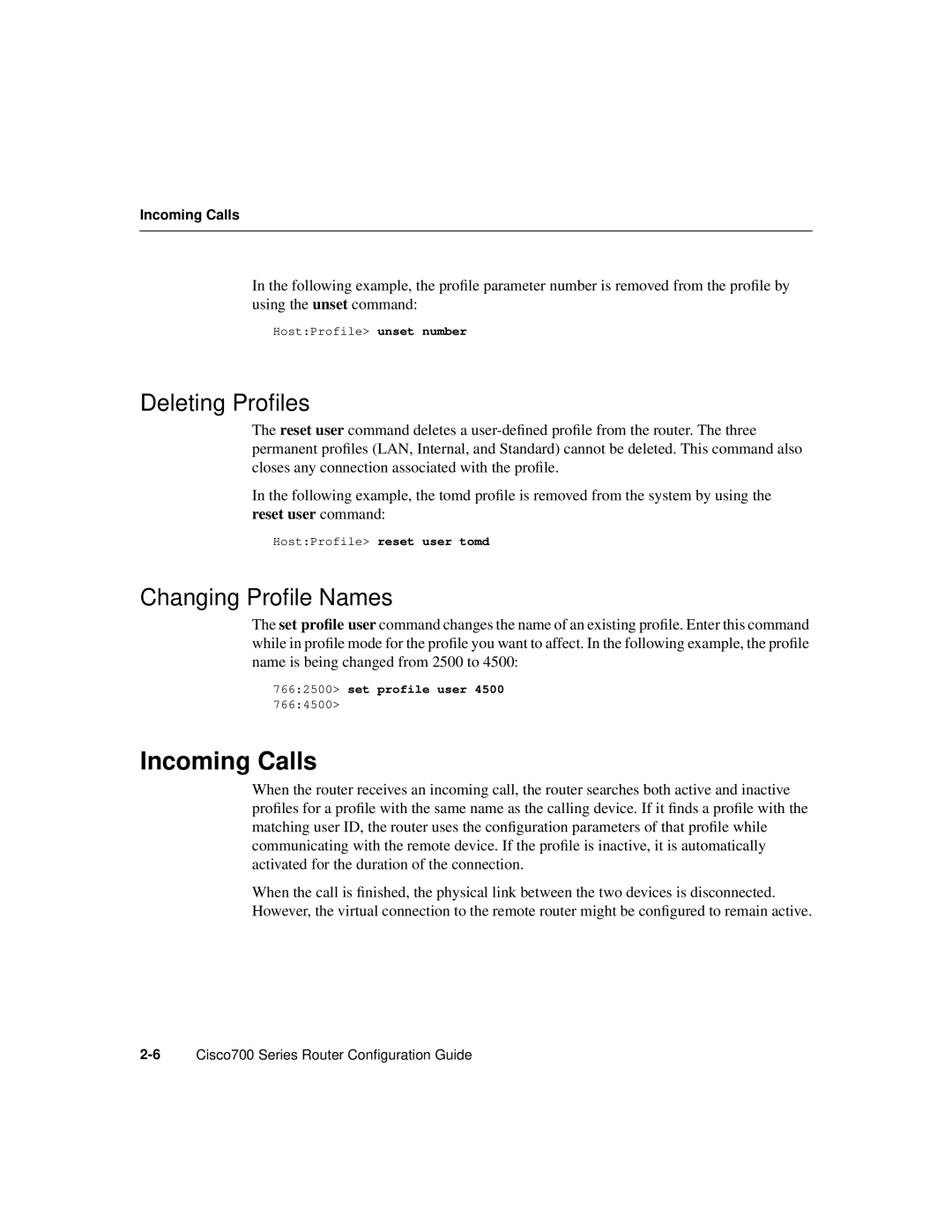Incoming Calls
In the following example, the profile parameter number is removed from the profile by using the unset command:
Host:Profile> unset number
Deleting Profiles
The reset user command deletes a
In the following example, the tomd profile is removed from the system by using the reset user command:
Host:Profile> reset user tomd
Changing Profile Names
The set profile user command changes the name of an existing profile. Enter this command while in profile mode for the profile you want to affect. In the following example, the profile name is being changed from 2500 to 4500:
766:2500> set profile user 4500
766:4500>
Incoming Calls
When the router receives an incoming call, the router searches both active and inactive profiles for a profile with the same name as the calling device. If it finds a profile with the matching user ID, the router uses the configuration parameters of that profile while communicating with the remote device. If the profile is inactive, it is automatically activated for the duration of the connection.
When the call is finished, the physical link between the two devices is disconnected. However, the virtual connection to the remote router might be configured to remain active.
